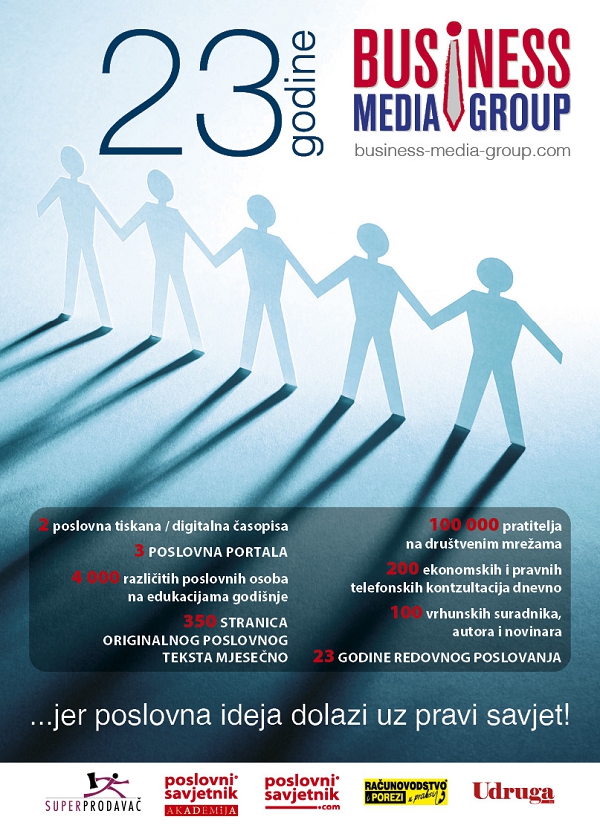JOHN LODDER: Would you measure Trust and Loyalty by using a ‘Lie-Detector’?
On April 18 HINA issued, for me, shocking news about Valipile, a company near Pazin. Management uses a polygraph, a ‘Lie-Detector’, to measure the Loyalty of their 120 employees.
The management said that it is a normal procedure for the verification of the Loyalty of workers and they see nothing wrong in using it. All employees were tested on a voluntarily basis and testing could have been declined without any consequences. “The purpose is to assess how loyal managers are, their loyalty to the company….all questions exclusively related to such things. Most often such tests cause some positive effect." said the director of the company Andrej Alilović.
For me this is a clear example of Mistrust.
In my opinion, if you fail as management to trust your employees and fail to bring loyalty and trust into your company culture then a ‘Lie-Detector’ will absolutely not help.
By the way, Lie-Detectors are not regarded as valid and reliable instruments by scientists and their associations.
Loyalty is Trust
Trust is the first and foremost basic prerequisite for building and keeping good relationships. Without Trust there is no Loyalty and there is no Relationship. That goes for private life, in which a strong relationship between two partners, or with friends, can only exist when it is built on values as trust, honesty, open dialogue and exchange. Based on these values you can have your disagreements and discussions without having to fear for the foundation of your relationship.
Ah… would you use a lie-detector before you commit yourself into a private relationship?
This is not different for working relationships between management and their stakeholders. A basic responsibility of management is to create Loyalty and Trust throughout the company, between management and employees, of course! But Trust is also a basic need between your company and your suppliers and customers. If suppliers or customers do not trust your company or your people anymore you will lose them immediately.
Low Trust Organizations
Organizations where Trust is (too) low show some similar characteristics in their company culture, results and output:
• Redundancy: employees are easily fired because they are seen as a threat by their management. Not for doing a bad job performance but because they are e.g. too clever, having more expertise than their management, are too open in suggesting improvements, etc.
• Bureaucracy: procedures and rules run your business instead of management-employee communication and action. Professor John Whitney (Columbia Business School) states: ‘Everything takes longer when you don’t trust those around you; mistrust doubles the cost of doing your business.’
• Politics: meetings are not open exchanges between management and employees; they are not aimed at cooperative decision making; everything is ‘pre-cooked’ in a - often very - small group of managers.
• Disengagement: people are not and feel not involved in the process; there is a lack of (open) information; there is no spirit, no communication, no teamwork.
• Turnover: The main goal of the company is not reached; turnover and profit stay behind, costs are too high.
‘Trusted Leaders do things faster, better and against lower costs’ (Stephen Covey in ‘The speed of trust’)
High Trust Organizations
Organizations where Trust is highly embedded also have some similar characteristics in their company culture, results and outputs:
• Your suppliers like to deliver to you because they trust you as a business partner.
• Your customers like to buy from you because you do not cheat on them.
• Your employees like to work for you because you are open and honest. You always tell them the truth so they know they can trust you.
With results like:
• Business processes go smooth and fast.
• Employees cooperate and solve problems together.
• Decisions are implemented faster and easier.
• Internal costs are lower.
• Turnover and profit is higher.
Employees want to be happy in their workplace. This enables and motivates them to be productive for your company. In a trusting culture they can be creative and they deliver ideas for improving processes and come up with suggestions for creating new products and services.
The number one reason employees are happy is because they trust their leaders. Surprisingly, less than half of employees have trust and confidence in their senior managers. (Baldoni in ‘Lead Your Boss’)
Happy Employees
Employee happiness and satisfaction is a complex mix of many factors. Research shows that the number one satisfaction-factor is that they trust their leaders. As a manager ask yourself a simple question: “Are my employees satisfied and happy?” This can be easily measured by using open communication or, even with internal questionnaires. And then, a perhaps more difficult question: “What am I intentionally doing to build trust?”
Change is the only constant
In today’s business world nothing stays the same for long, think of e.g.:
• Times to market get shorter
• Competitive advantages are more difficult to create and have a shorter life cycle
• Innovations pop up daily in all sectors, all professions and all continents daily.
• New businesses start up and many grow fast and successful. The international press comes up almost daily with a new success story.
Companies that do not anticipate fast and fail to adjust in time will be out of business soon. The ‘world’ or the competition will not wait for you to get ready. The only management action is to do everything to become and stay a successful company. This requires ‘cherishing’ your human capital and, to involve your Human Resources Department. Successful companies
Successful organizations have a company culture based on Trust, Honesty and Openness. How to build a culture of trust?
1 - For individual managers
Dan Rockwell gives some handy steps to start building TRUST in your company: Transparency:
1. Tell people who you are, if you expect to see who they really are.
2. Tell people what is going on. Insecurity inspires protective barriers.
3. “Be Present”. I cannot trust you if you are not really here.
Relationship: tell people where they stand
1. Candor with gentleness is kind; uncertainty is cruel.
2. People want to know if they fit in.
3. People wonder if they are respected and good enough.
Understanding: communicate with context
1. A picture with a frame becomes a different picture.
2. Uncertainty creates confusion. Background eliminates confusion.
3. Explain intentions, dreams, and long-term goals and talk about it.
Shared success: demonstrate how WE win together
1. Reject monologue. Embrace dialogue.
2. Help others standout.
3. Use status to give status.
Tell the truth at all times
1. Do not make the situation look better than it is, even if you could.
2. Hard truths are the most important truths.
3. Confront in the smallest context possible.
2 - For Teams
You can start today with some concrete and structured actions:
• Make trust an explicit item on your regular management team agenda for one hour.
• Exchange openly how to implement the steps mentioned above.
• Let your senior and middle management exchange this openly with their teams.
• In your management team talk about the results and give each other constructive feedback.
• Take concrete actions to show your people how serious you are in establishing trust, loyalty, openness, cooperation and a constructive culture to work in.
• Be authentic.
There are simple, short and structured approaches and trainings that can help you and your people efficiently to support this process and to speed it up.
The results will come after you gained the Trust and then this will turn out to be the best investment you ever made.
TRUST
Being trusted always starts with giving trust; it is a top-down process.
Giving trust starts with open and honest communication.
Open communication is a two-way road between people.
This basic human process can never be replaced by a machine.
It certainly will not help to build trust by introducing a lie-detector as a measurement system.
John Lodder M.A.,MSc.
All my previous columns you may find at: www.balance-consultancy.com















